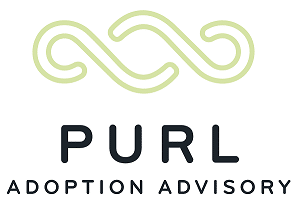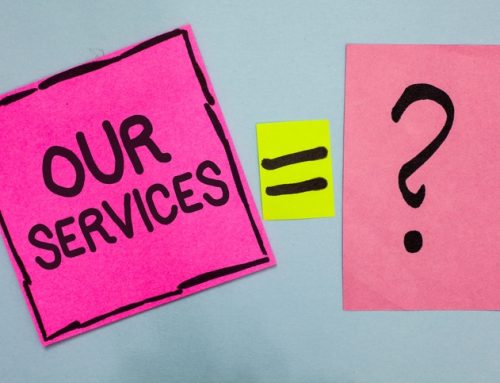
Domestic infant adoption can be really expensive and the average cost is currently between $39,000 – 41,000. There is a lot of variability in domestic infant adoption costs by state and by the type of professionals that are involved in your adoption (agency, attorneys, etc.). The costs you might see in a domestic infant adoption will vary considerably depending on the type of adoption (private/independent, attorney, or agency adoption) and the state from which you are adopting. The adoption professionals we usually recommend to our Purl Families typically have adoption opportunities with total costs (including home study related costs) ranging between $8,000 and $50,000, with the majority falling between $20,000 and $45,000. Below, we break down the types of costs prospective adoptive parents may incur during their adoption journey, but what is permissible and typical will also be governed by the law in the states involved.
-
Home Study Fees: All states require that families applying to adopt complete a home study in their home state. The fees vary widely by state, but most fall between $1,000-$3,000.
-
Adoption Profile Design/Printing Costs: Most adoption professionals require prospective adoptive parents to make an electronic and hard copy scrapbook of their family, typically called an adoption profile, which is presented to an expectant mother/couple considering adoption for her/their child. Many people are overwhelmed at the idea of creating this profile and instead will pay a professional to design it. Families will also incur the costs associated with printing these profiles. Expect professional design costs to be between $500-$1500, with printing costs of about $15-$20/book depending on the length, volume of books being printed, and the printer.
-
Adoption Advisor Fees: Many prospective adoptive families like the added assistance of an adoption advisor (also known as adoption guide or adoption planner) to be their advocate and guide through the process, who typically use a multi-adoption professional approach to have families see more adoption opportunities than they would through just one agency or attorney. Check out this post about why you might hire an adoption advisor. Expect fees to be between $2,000 – $5,500 depending on the adoption advisor and what services they offer.
-
Placement Agency Fees: If adopting through an adoption agency, fees can vary widely. Some states require that an agency licensed in the state be involved in every adoption, even if it is an independent adoption (otherwise known as “self-match”). We’ve seen agency fees ranging from $6,000-$35,000 and this can include some or most of the other costs we outline here (including advertising, discussed more below). Adoption professionals tend to set their fees consistent with other professionals in their states, so this is where you’ll see a lot of variation in costs by state.
-
Legal Fees: This category includes fees for separate attorneys to represent the prospective adoptive parents and the expectant parents. These fees can be for consultation during a match, signing of applicable legal paperwork after the birth, and finalization of the adoption by the adoptive parents. Some attorneys charge a flat fee and others charge an hourly rate. Depending on the state and the attorneys’ practices, an attorney may also be involved in the matching of expectant parents with prospective adoptive parents and may or may not charge fees relating to that match. We’ve seen legal fees between $2,000-$20,000 per adoption (where the adoption is not contested).
-
Expectant Mother’s Living Expenses: What is permissible varies by state, but typical living expenses include rent, utilities, food, cell phone, transportation and maternity clothes for the expectant mother during the pregnancy and for a period of time after the child is born (typically 6-8 weeks). We’ve seen adoption situations with living expenses ranging from $0 to up to $18,000. These fees differ so widely based on the needs of the expectant mother, during which part of her pregnancy she begins working with the attorney/agency, and the cost of living where she currently resides. These are commonly fees that are at risk in the event of a disrupted adoption.
-
Expectant Mother’s Medical Fees: These fees can include hospital charges, doctors’ bills, prescription drugs, medical testing and non-prescription vitamins. If an expectant mother is covered by state Medicaid, these costs could be minimal. In the event she has private insurance, adoptive parents can typically expect to pay any deductibles or copays she incurs. Any costs relating to the child to be adopted are normally covered by the adoptive family’s medical insurance.
-
Professional Counseling/Social Worker for the Expectant Parents: These costs can include counseling and/or assistance during the pregnancy and after the birth, and can range from $250-$3,500.
-
Transportation and Accommodation Costs: These costs are typically incurred in the case of an interstate adoption, i.e. when a family is adopting a child out of their home state. Travel (via air or car) and accommodations (hotel, Airbnb) are necessary while the child is in the hospital and while the adoptive parents await clearance from the Interstate Compact for the Placement of Children (ICPC) office in both states involved in the adoption. These costs vary widely based on the circumstances.
-
Advertising: Many families attempting a private/independent adoption use various methods of advertising to get the word out about their desire to adopt, with the hope of connecting with expectant parents considering adoption for their child. Advertising can be done through publications, online via google ads, or through ads on social media. But take note – paid advertising is prohibited in some states, so talk with an adoption attorney in your state to determine what is permissible. Advertising costs vary and are dependent on the amount, type and frequency of advertising used. Note that some people in the adoption triad are uncomfortable with the idea of paid advertising, so expect to receive some pushback if you use this method in your adoption journey. Note that high volume adoption agencies are spending thousands of dollars every month on advertising, and that is what is giving those agencies access to more expectant moms who have located them when they have done a google search or search on another platform. Those advertising fees are being passed along to adoptive families through a portion of the agency fees or specific advertising fees that is separate from the agency fee (ranging from $2,500 – 15,000).
-
Post-Placement Visits: Following an adoption placement, adoptive families will undergo a post-placement supervision period before an adoption can be finalized. During this period, a social worker will make visits to the adoptive home and develop a report detailing the child’s and parents’ adjustment to the placement. These visits are usually conducted by your home study provider, but at an additional cost. Adoptive families are typically charged by the number of visits required by the state in which the adoption is being finalized (expect somewhere between $500-$2,500).
-
Court Costs: These costs include court filing fees, publication fees, certified copies of documents, etc. and can be up to $1,000.
It’s important to understand that no two adoptions are the same, and it’s easy to get overwhelmed by the cost of adoption, as well as the adoption process as a whole! If you are a prospective adoptive parent who wants more guidance in your adoption journey, please contact Purl to learn more about what an adoption advisor does to guide families throughout their adoption.
Note that there are many ways to fund your adoption. A great book to help you with adoption funding is You Can Adopt Without Debt by Julie Gumm. You can also hire professionals to help you find the funding for your adoption through creative budgeting, side-hustles, loans, or adoption grants. The company we typically recommend and have available for all our Purl families is Family Money Coaching. Please note that adoption fundraising is relatively controversial, particularly since many expectant mothers are making adoption plans due to financial need, so use caution and consider the perspectives of the adoption triad to consider whether you are comfortable with this method and to learn how you might do it more appropriately. You should also be aware that there is a federal Adoption Tax Credit, and even some states offer tax credits. You can also go to fundyouradoption.org and get a list of adoption grants and loans that you might be eligible for. Grant writing and applications can be time consuming, but many people are able to fund most of their adoption costs entirely through grants awarded to families adopting the most vulnerable children.

Domestic infant adoption can be really expensive and the average cost is currently between $39,000 – 41,000. There is a lot of variability in domestic infant adoption costs by state and by the type of professionals that are involved in your adoption (agency, attorneys, etc.). The costs you might see in a domestic infant adoption will vary considerably depending on the type of adoption (private/independent, attorney, or agency adoption) and the state from which you are adopting. The adoption professionals we usually recommend to our Purl Families typically have adoption opportunities with total costs (including home study related costs) ranging between $8,000 and $50,000, with the majority falling between $20,000 and $45,000. Below, we break down the types of costs prospective adoptive parents may incur during their adoption journey, but what is permissible and typical will also be governed by the law in the states involved.
-
Home Study Fees: All states require that families applying to adopt complete a home study in their home state. The fees vary widely by state, but most fall between $1,000-$3,000.
-
Adoption Profile Design/Printing Costs: Most adoption professionals require prospective adoptive parents to make an electronic and hard copy scrapbook of their family, typically called an adoption profile, which is presented to an expectant mother/couple considering adoption for her/their child. Many people are overwhelmed at the idea of creating this profile and instead will pay a professional to design it. Families will also incur the costs associated with printing these profiles. Expect professional design costs to be between $500-$1500, with printing costs of about $15-$20/book depending on the length, volume of books being printed, and the printer.
-
Adoption Advisor Fees: Many prospective adoptive families like the added assistance of an adoption advisor (also known as adoption guide or adoption planner) to be their advocate and guide through the process, who typically use a multi-adoption professional approach to have families see more adoption opportunities than they would through just one agency or attorney. Check out this post about why you might hire an adoption advisor. Expect fees to be between $2,000 – $5,500 depending on the adoption advisor and what services they offer.
-
Placement Agency Fees: If adopting through an adoption agency, fees can vary widely. Some states require that an agency licensed in the state be involved in every adoption, even if it is an independent adoption (otherwise known as “self-match”). We’ve seen agency fees ranging from $6,000-$35,000 and this can include some or most of the other costs we outline here (including advertising, discussed more below). Adoption professionals tend to set their fees consistent with other professionals in their states, so this is where you’ll see a lot of variation in costs by state.
-
Legal Fees: This category includes fees for separate attorneys to represent the prospective adoptive parents and the expectant parents. These fees can be for consultation during a match, signing of applicable legal paperwork after the birth, and finalization of the adoption by the adoptive parents. Some attorneys charge a flat fee and others charge an hourly rate. Depending on the state and the attorneys’ practices, an attorney may also be involved in the matching of expectant parents with prospective adoptive parents and may or may not charge fees relating to that match. We’ve seen legal fees between $2,000-$20,000 per adoption (where the adoption is not contested).
-
Expectant Mother’s Living Expenses: What is permissible varies by state, but typical living expenses include rent, utilities, food, cell phone, transportation and maternity clothes for the expectant mother during the pregnancy and for a period of time after the child is born (typically 6-8 weeks). We’ve seen adoption situations with living expenses ranging from $0 to up to $18,000. These fees differ so widely based on the needs of the expectant mother, during which part of her pregnancy she begins working with the attorney/agency, and the cost of living where she currently resides. These are commonly fees that are at risk in the event of a disrupted adoption.
-
Expectant Mother’s Medical Fees: These fees can include hospital charges, doctors’ bills, prescription drugs, medical testing and non-prescription vitamins. If an expectant mother is covered by state Medicaid, these costs could be minimal. In the event she has private insurance, adoptive parents can typically expect to pay any deductibles or copays she incurs. Any costs relating to the child to be adopted are normally covered by the adoptive family’s medical insurance.
-
Professional Counseling/Social Worker for the Expectant Parents: These costs can include counseling and/or assistance during the pregnancy and after the birth, and can range from $250-$3,500.
-
Transportation and Accommodation Costs: These costs are typically incurred in the case of an interstate adoption, i.e. when a family is adopting a child out of their home state. Travel (via air or car) and accommodations (hotel, Airbnb) are necessary while the child is in the hospital and while the adoptive parents await clearance from the Interstate Compact for the Placement of Children (ICPC) office in both states involved in the adoption. These costs vary widely based on the circumstances.
-
Advertising: Many families attempting a private/independent adoption use various methods of advertising to get the word out about their desire to adopt, with the hope of connecting with expectant parents considering adoption for their child. Advertising can be done through publications, online via google ads, or through ads on social media. But take note – paid advertising is prohibited in some states, so talk with an adoption attorney in your state to determine what is permissible. Advertising costs vary and are dependent on the amount, type and frequency of advertising used. Note that some people in the adoption triad are uncomfortable with the idea of paid advertising, so expect to receive some pushback if you use this method in your adoption journey. Note that high volume adoption agencies are spending thousands of dollars every month on advertising, and that is what is giving those agencies access to more expectant moms who have located them when they have done a google search or search on another platform. Those advertising fees are being passed along to adoptive families through a portion of the agency fees or specific advertising fees that is separate from the agency fee (ranging from $2,500 – 15,000).
-
Post-Placement Visits: Following an adoption placement, adoptive families will undergo a post-placement supervision period before an adoption can be finalized. During this period, a social worker will make visits to the adoptive home and develop a report detailing the child’s and parents’ adjustment to the placement. These visits are usually conducted by your home study provider, but at an additional cost. Adoptive families are typically charged by the number of visits required by the state in which the adoption is being finalized (expect somewhere between $500-$2,500).
-
Court Costs: These costs include court filing fees, publication fees, certified copies of documents, etc. and can be up to $1,000.
It’s important to understand that no two adoptions are the same, and it’s easy to get overwhelmed by the cost of adoption, as well as the adoption process as a whole! If you are a prospective adoptive parent who wants more guidance in your adoption journey, please contact Purl to learn more about what an adoption advisor does to guide families throughout their adoption.
Note that there are many ways to fund your adoption. A great book to help you with adoption funding is You Can Adopt Without Debt by Julie Gumm. You can also hire professionals to help you find the funding for your adoption through creative budgeting, side-hustles, loans, or adoption grants. The company we typically recommend and have available for all our Purl families is Family Money Coaching. Please note that adoption fundraising is relatively controversial, particularly since many expectant mothers are making adoption plans due to financial need, so use caution and consider the perspectives of the adoption triad to consider whether you are comfortable with this method and to learn how you might do it more appropriately. You should also be aware that there is a federal Adoption Tax Credit, and even some states offer tax credits. You can also go to fundyouradoption.org and get a list of adoption grants and loans that you might be eligible for. Grant writing and applications can be time consuming, but many people are able to fund most of their adoption costs entirely through grants awarded to families adopting the most vulnerable children.



